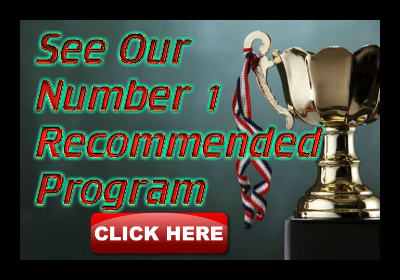What do you know about SEO?
That is an abbreviation or acronym for Search Engine Optimization. When you go on the internet to look something up, it will bring up a page with topics related to what you ask. For example, say you are looking for toy trucks. It may give you different places to find them such as toy stores or discount outlets, but if you type in Tonka Trucks it will give you something more definitive. When someone types in information related to your niche, you want your website to appear on the first page if possible, so that you are more likely to get the most visitors and therefore business to your site. It all depends on how you present your website and what methods you use to draw in your target audience. This changes all the time and you have to take advantage of the current trends and interests.
Where do you start with SEO?
The most important way to get started with Search Engine Optimization (SEO) is to do a keyword analysis; This will be one of the best tools for the success of your online business. Keywords are what people use to search for your products or services through the Internet search facilities, like Google and Bing or Yahoo. They can be generic descriptions of your business type all the way thru to the products and services you may offer.

To find the best keywords for your business, think as a customer of your own business, and ask how you would research your business online?
After you have those special keywords you need to include them in the most important parts of your website; like the domain name, tags, Meta titles, article titles, etc. It is critical to take your time and correctly identify the keywords before you build your website. Ask your web designer for help to alter the coding in your website to permit a stronger SEO.
What Keywords Have High Search Volume
Find specific keywords that attract a high search volume in search engines. You can use a free keyword analysis tool like Google’s Keyword tool. . Remember to tailor your search to your customers’ location and languages, depending on where your business is operating from. Search terms in the UK or Australia may not translate as well in the US or Canada. Your goal is to find keywords that have a high number of monthly searches but rank low on competition, in other word, keyword having a high number of monthly searches (200 or more) but fewer searches. Identify keywords that represent your business that also fall into this situation, for a higher ranking in search engines.
Enter your chosen keywords into search engines to determine how your competitors are ranking and to get an overall sense of the keywords they are using. Create a list of around 30 best keywords (or key phrases) that are relevant to your business and you have the basis for developing a strong SEO for your business.
Google and How It Works with SEO
It is thought that Google’s search engines hand out page one search rankings for websites and blogs based upon a series of secret and mysterious calculations. That is basically correct. Let’s try to decode and understand how they do it. They have scientists and mathematicians constantly working to increase the artificial intelligence of its search engine and analyze their findings frequently based on the latest data.
Some SEO experts have used devious means to try and trick Google into getting ranked higher to try and fool Google. Google doesn’t like this and is constantly fine tuning its search parameters to avoid these tactics.
Google’s wants to ensure that it is always delivering search results that users find interesting and up to date. Its $30 billion revenue earned off search advertising is under threat if people do not use it… With rumors rampant that Facebook is building its’ own search engine, Google needs to keep up with this growing competition from social media and could face elimination, if it doesn’t continually improve and stay current. Google has increased the importance of this by tracking the speed of websites and sites that produce original content.
Unique Content – Why Google Loves It!
Google does like great and unique content. We all realize how important this has become. We use the web to find information, so Google is putting such a high value on unique content that needs to be shared such as videos, blog posts and eBooks. This also has a big side benefit. People will link to your website or blog and Google gives you big points in its search engine calculations and this means the more back-links are created to your blog and website from other websites.
This final stage of getting Google to like you should be included in your SEO strategy.
On-Page Tips: The 7 Keys
After developing your keyword list, make them work for you. Add them to the coding of your website in areas that search engines use to rank websites.
1: The Title tag
Place your keywords into the title tag of your home page and each subpage. Give each of your web pages a different title tag and limit text length to 70 characters. Begin with your most important keywords then move down the list, separating them by vertical hyphen “|”.
- Use different title tags across all of your pages. Make it unique for each page.
- If you try to apply similar keywords into the title tag area it will back fire because search engines are designed to identify this attempt at SEO manipulation and will disregard your site.
2: Meta Description
The Meta Description is the call to action for your page. It should have an enticing, informative message with as many keywords as possible to encourage people to click your page. It should contain about 140 characters so design it carefully and make the most of descriptions of your keywords without generic references. Ask your web designer for help to make the most of your Meta Description and get the best results from SEO.
3: Alternative text for images
In WordPress refer to the Alternate text attribute with your keywords that describe the image. Don’t forget to name your images with keywords and LSI Keywords as well.
4: Make the most of your On-page copy
Your website still might not rank highly unless you take advantage of your copy writing. Place keywords into your copy so they attract the reader. Between 2-7% of keywords should be in your copy. You can see examples of this by looking at the current search results pages by measuring the keyword density of the top 5-10 pages that are ranking well and get an average.
5: Have a SEO friendly website
The programming language you use can impact a search engines ability to categorize your website. Flash or JavaScript for example don’t relate well with Google to identify the information for ranking them. Also since Flash isn’t supported by Apple and its devices, that is not friendly to search engines. Ask your web designer to propose solutions that ensure a SEO friendly website.
6: Have a neat, well-organized site structure
If your visitors cannot navigate your site easily and find what they are looking for they will leave and you will lose potential customers. You want to present a well organized, user friendly and easily expandable site. You should be able to access any page from the home page within 2 clicks. Not all search engines are designed to go beyond that to build their rankings. Again, ask you web designed for assistance if you cannot accomplish this.
7: Have a keyword-rich and short URL
Always use keywords when defining your URL and keeping it shorter is better such as using www.toys.com instead of www.toytrucks.com/12111/abcdef0099.html.
Using key descriptions for items on your website can help you keep your site organized, and better screening of your documents by search engines. Shorter and friendlier are easier to remember. Visitors can be intimidated by extremely long or cryptic URLs that contain unrecognizable words. If your URL contains keywords words, it gives users and search engines with more information.
Off-page Links
Off-page or building links is by far the most important activity to get your website a better ranking in search engines. This can account for 80% of an SEO campaigns’ success.
BackLinks Are Important
A link brings you to another page. These important Back links are similar to votes that show how other web pages use your page for information. Your ranking will be higher with more websites that have linked or are “voting” for your webpage. It’s important to remember that not all votes are valued in the same way. Links from the homepages of major websites, USA.gov, amazon or facebook, are worth a lot more than a less familiar website.
So here are 6 tips to build easy links:
1: How to Up Stage Your Competitors
There are easy link building tactics available even if you don’t automatically attract the major websites. Using a competitor analysis is a good way to get attention. People like to see valid comparison studies. You want to repeat what your best competitors are doing to match and exceed them. You can go through and match all or a majority of their links and then research and get additional links that they don’t have. By doing this, you will be able to easily pass them in search ranking results.
2: The Content is Key
If you want to get the best ratings you have to provide the best, most relevant and appealing content. A currently popular topic with a compelling title will draw people to your site.
Learn More: Content Marketing
Write a factual article or review of something related to your site and provide some new information for people to think about. Start out with a provocative statement and draw the reader in to find out what else you have to say. I saw an article recently that asked “Are you a Good Fit?” It questions the reader and draws them in. Regularly posted quality content will get more traffic to your website with at least 2 new articles per week or more. Google favors websites with fresh material. Offering new, fresh information will draw other websites to want to link to you..
When you are posting articles apply the same principles of Title tag and Meta Description to your articles, and use your desired keywords or phrases.
3. A Guest Blog
Getting a link to a popular established website/blog is a great way to improve your visibility. Start by finding and visiting these sites and comment or contribute to them. You can even ask to be a guest blogger just to get a link back to your own site. Start building contacts and relationships with people on these sites such as reviewers, authors, experts or anyone who is hosting a website in your niche If you have a special expertise or new idea, be sure to highlight that but don’t give it away. Save the best content and ideas for your own site. Ask them for a link.
Learn More: Guest Blogging
Everybody wants more exposure and this is a great way to get noticed. Don’t forget about social media sites, message boards, any place you can think of to find interested people to build your own network. The more you have the better your ranking.
4: Web 2.0 site

These pages provide interactive information sharing and collaboration. You can add articles that more than one free back link per article to your website. Don’t copy your existing articles from your website and use them because search engines are filtering content and look for duplication and that can hurt your site ranking.
To create strong SEO benefits focus on your keywords. Use multimedia, such as videos or images to build trust and authority quickly. A few articles can use back links in your articles to your main site.
An RSS feed can give back links and context, and that is great for search engines.
5: Including Testimonials
A great way to get free links is to submit testimonials for your suppliers, business partners. This can boost your followers and reputation as a reliable and relevant contributor. Remember to include your keywords into your testimonials and connect it back to your website.
6: Ask for Links from your Network
Use your own networks to build more links. Contact your own business contacts, personal friends and family members, local businesses, social groups, and volunteer participation. These all have the potential for providing you back links. Consider including Linked In or other professional affiliations. Ask for a free back link on their website. The higher page rank or related websites you can link to, the more it will help you. Don’t be shy. Power your SEO efforts by finding prominent websites to link with yours.
These are the basic, beginning tactics to help you build a strong foundation. It’s a starting point and will help you move your search engine ranking and your website traffic to a higher level.
What Are You Doing for You?
Are you creating content that is valuable enough to be linked to? Is your content unique or inspiring?
Are you using videos and interesting images in content creation or is it mainly articles? What works for your website or blog?
How to be Found and Discovered Online? Start building your own website or blog.
Do some homework and find out how to create and build a blog and website that rocks your niche market and will grow fans and followers on social networks such as Twitter and Facebook. Look up social media sites and see what is out there that appeals to you. Research articles on how to create blogs that are irresistible and contagious. Study Social Media and find out how to grow your followers and lead them to your website. Promote yourself shamelessly and write your own ticket to success.
What have you really learned today?
This was a great learning experience for Affiliate Marketers and On Line Business beginners. It was an opportunity to understand the details of making your business website successful. Marketing your business on the internet can seem overwhelming, but if you follow the guidelines presented here, it will be much easier and you will see results.
It is preferable to have your site rank on the first two pages of Google. If you write consistent, relevant and new content on a regular basis that is appealing to your niche audience, you can achieve that and reach more customers and improve your site ranking.
Programs such as Word Press make it simple to create and publish your website and has many tools to help you. No matter what program you use, work with your Web Designer to reach the best SEO results and check your keyword rankings regularly to take advantage of new trends. Stay on top of your competition by visiting their sites and seeing their designs and content.
Ask your site visitors for suggestions on topics that are important to them and develop content for their needs. Solving a problem for them in your website and helping them improve something important to them will create more trust and interest and future customers.
Most of all enjoy this process and come away with a sense of accomplishment and pride. This is your business. Make it stand out.
The Next Move is Yours
If you haven’t already decided on an Affiliate Program, you will want to do some more research and find out what they have to offer. Not all of them work the same way. Be sure to keep your budget in mind and take a look at what kind of tools, training and support they have to offer. They should provide you with basic support and training to help you create your website and get it running. They may already have pages and suggestions for you to choose from. Make note of the web design programs they are using and look them up on the internet and see how they work before you commit to the program.
Hopefully, all of these things are included and you won’t have to spend extra time or money to include them. Ask as many questions as you can before you sign up and take advantage of trial periods and free access. Read all the reviews you can find, pros and cons and information from members and competitors. You want the best you can find and to be comfortable with the terms and amenities. Look at their business statements and policy statements and read the fine print about rules and practices. This is your project and you want to be as well informed as possible.
The best of luck and success to you in your new venture and be sure to incorporate these easy SEO tips!








Hi Pj,
Thanks for this very timely post! It is very useful for a newbie like me. I have a question about linking to an external site. I currently have very limited external links because I am still on the early stages of my website building. I’m concerned about hurting my SEO. I am only on my third month and I am concentrating to use internal links only as much as possible. When is the best time to start using external links? How do I make sure that these external links will do my site more good than bad? I’d appreciate any info you can give. Thanks a lot!
Pitin
Hi Pitin,
You can begin linking to external websites whenever you wish. The key about external links is to ensure you are linking to solid authority websites. In this way, the search engines will look at your website as a resource where visitors can come and learn and find more information. Linking to authority, topic-related websites will actually help you out. Just don’t link to some weak, spammy website – that will hurt your SEO.
Great Question and Thanks for stopping by!
pj